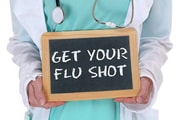
Heart disease. It’s a term that carries weight for many Americans. It remains the leading cause of death in the US, claiming nearly 372,000 lives in 2022 alone. Yet, cardiologists say there’s something hopeful buried beneath that statistic: as much as 80% of heart disease cases are preventable.
That means, no matter your age or current health, small changes made today can have a major impact on your heart tomorrow. So how much control do you really have—and what are experts saying you can do right now to keep your heart strong?
"We need to focus more on adhering to those Life's Essential 8 behaviors, because that's really what will prevent heart disease"
The Sobering Reality People Are Facing
One person dies every 34 seconds from cardiovascular disease, and heart disease costs about $417.9 billion from 2020 to 2021 in healthcare services, medicines, and lost productivity. For Americans over 65, the numbers hit even closer to home: total direct and indirect annual costs for CVD and stroke in 2020 to 2021 were $174.4 billion for patients 65 years of age and older—about 42% of total CVD and stroke costs.
The future projections are equally striking. About 61% of adults will have cardiovascular disease by 2050, driven partly by the aging population and the reality that communities of color—which are growing segments of our population—tend to have disproportionate numbers of heart problems.
Understanding Your Heart's Needs
Heart disease isn't just one condition—it's an umbrella term covering everything from coronary artery disease to arrhythmias to heart failure. The most common culprit, coronary artery disease, happens when the arteries supplying your heart muscle begin to narrow due to plaque buildup. Think of it like your home's plumbing system developing blockages that restrict water flow—except in this case, it's restricting the oxygen-rich blood your heart muscle desperately needs.
The encouraging news is that recent research shows even modest improvements in risk factors can make a significant difference. A groundbreaking study published in the Journal of the American College of Cardiology found that 99% of people who experienced heart attacks, strokes, or heart failure had been exposed to at least one risk factor—high cholesterol, high blood pressure, elevated blood sugar, or smoking—above acceptable levels. The key insight? You don't need to wait for a clinical diagnosis to start taking action.
Also read: Protect your heart: Are you overlooking these surprising risk factors like many Americans?
The Prevention Promise That Could Change Everything
Here's where the story gets hopeful: health experts estimate that heart disease is at least 80% preventable. That's not a small margin—that's a life-changing opportunity sitting right in front of you.
The secret isn't in expensive treatments or complicated medical procedures. It's in a framework that the American Heart Association has been refining for over a decade, now called Life's Essential 8. These eight factors represent your best defense against heart disease, and the beauty is that you have control over every single one.
Heart Attack Survival: Then and Now
In 1970: 60% survival rate for those over 65 hospitalized for heart attacks
In 2025: Over 90% survival rate for the same age group
This 90% improvement represents decades of medical advances in emergency care, surgical procedures, and medications—but prevention remains your best protection.
Your Roadmap to Heart Health: Life's Essential 8
Life's Essential 8 are: not-smoking, physical activity, healthy diet, healthy body weight, sleep health, and control of cholesterol, blood pressure, and blood sugar. Each component is scored from 0 to 100 points, giving you a clear picture of where you stand and where you can improve.
The Lifestyle Factors You Can Control Today
Eat better: Focus on whole foods, plenty of fruits and vegetables, lean proteins, nuts, and seeds. Cook with olive or canola oil instead of butter. The goal isn't perfection—it's progress toward a pattern that nourishes your heart.
Move more: Adults should get 2 and 1/2 hours of moderate or 75 minutes of vigorous physical activity per week. If that sounds daunting, remember that gardening, dancing, or even brisk walking while running errands all count toward your goal.
Quit tobacco completely: This includes e-cigarettes and vaping. The good news is that as soon as you stop, your heart disease risk begins dropping immediately.
Prioritize sleep: This is the newest addition to the framework, and for good reason. Adults should aim for an average of 7-9 hours of quality sleep each night. Poor sleep patterns significantly impact cardiovascular risk.
Also read: Is your morning routine putting your heart at risk? What experts say about a common habit
The Numbers That Tell Your Story
Maintain a healthy weight: Your BMI (body mass index) gives you a baseline, but focus on overall health rather than just the scale. Small, sustainable changes in diet and activity often yield the best long-term results.
Control cholesterol: Regular monitoring is key, especially since high cholesterol often has no symptoms. Your healthcare provider can help you understand your numbers and whether lifestyle changes alone are sufficient.
Manage blood sugar: Even if you don't have diabetes, keeping blood sugar levels stable supports heart health. This often comes naturally when you focus on the other lifestyle factors.
Monitor blood pressure: High blood pressure makes your heart work harder, putting strain on both your heart and arteries. Home monitoring has become easier and more affordable, giving you real-time feedback on your progress.
Did you know?
The American Heart Association updated its guidelines in 2022 to include sleep as the eighth essential factor. Research shows that both too little sleep (less than 7 hours) and too much sleep (more than 9 hours) are associated with increased heart disease risk.
The financial reality of heart disease hits particularly hard for people on fixed incomes. With Medicare covering many but not all heart-related expenses, prevention becomes not just a health strategy but a financial one. The cost of managing heart disease over time—from medications to procedures to lifestyle adjustments—can easily reach tens of thousands of dollars.
Compare that to the cost of prevention: a gym membership, healthier groceries, and regular checkups. The math is compelling, but the real value is in the quality of life you maintain and the independence you preserve.
Your Heart Health Action Plan
Start with one area where you feel confident making a change. Maybe it's adding a 10-minute walk after dinner or switching from butter to olive oil in your cooking. Small changes build momentum, and momentum builds lasting habits.
Consider working with your healthcare team to establish baseline measurements for your blood pressure, cholesterol, and blood sugar. Many community centers and pharmacies offer free or low-cost screening events. Knowledge is power, especially when it comes to numbers that don't always have obvious symptoms.
Don't underestimate the value of community support. Whether it's walking groups, cooking classes, or smoking cessation programs, having others on a similar journey makes the path more enjoyable and sustainable.
Also read: Are you at risk? The “silent” liver condition that could quietly strain your heart
Life's Essential 8 for Heart Health
- Eat better: Whole foods, fruits, vegetables, healthy oils
- Be more active: 150 minutes moderate exercise per week
- Avoid nicotine: All forms, including e-cigarettes and vaping
- Get quality sleep: 7-9 hours nightly for adults
- Maintain healthy weight: Focus on sustainable lifestyle changes
- Control cholesterol: Regular monitoring and management
- Manage blood sugar: Keep levels stable through diet and activity
- Monitor blood pressure: Track regularly, especially at home
Looking Toward a Healthier Future
The trajectory of heart disease treatment and prevention continues to improve. New medications, better surgical techniques, and enhanced emergency response systems all contribute to better outcomes. But the most powerful tool remains the one you've always had: your daily choices.
The research is clear, the framework is proven, and the support systems are available. Whether you're 60 or 90, whether you have existing heart concerns or want to prevent them entirely, it's never too late to benefit from improving your cardiovascular health.
Read next:
- Three simple foods that support heart health—without breaking your grocery budget
- Experts reveal the protein-packed food that supports heart health after 60
- Are your breakfast choices secretly straining your heart after 60?
What step will you take first to support your heart health? Share your thoughts or questions in the comments below—your experience might be exactly what another reader needs to hear.






